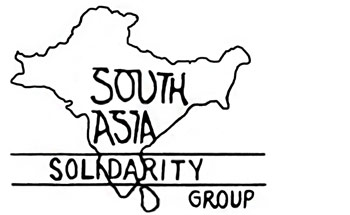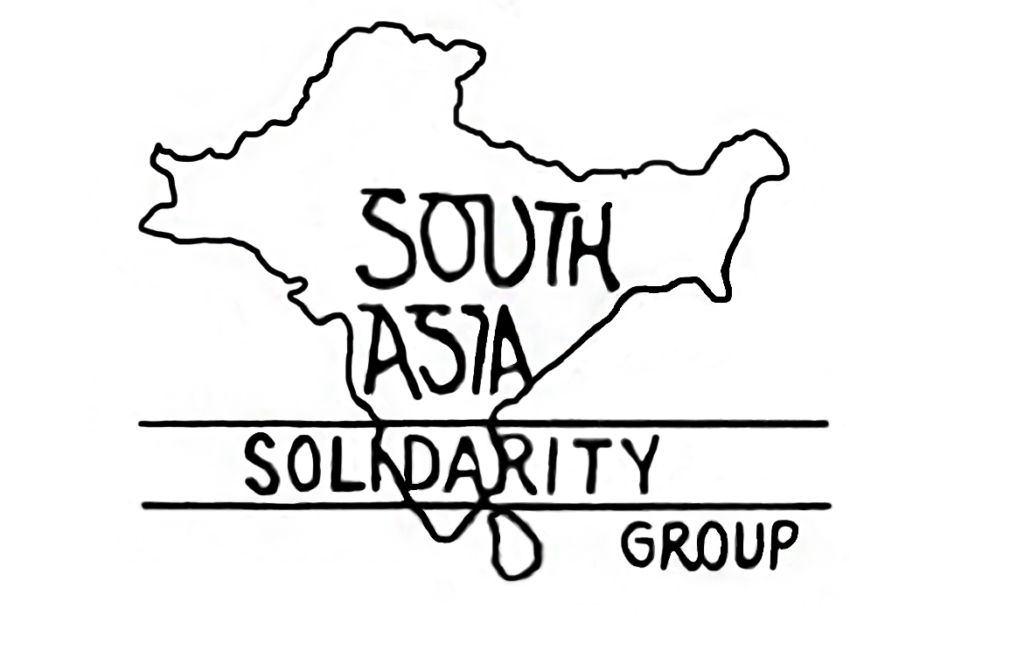PRESS RELEASE: Corporate Crimes in Modi’s India: Environmental Destruction and People’s Resistance, 9 October 2020
- October 10, 2020
- Posted by: kevbha
- Category: News
JEREMY CORBYN MP, former leader of the UK Labour Party and life-long environmentalist, anti-imperialist and supporter of people’s movements for democracy and justice joined key activists and researchers at a webinar entitled ‘Corporate Crimes in Modi’s India: Environmental Destruction and People’s Resistance’, hosted by South Asia Solidarity Group (SASG).
KALPANA WILSON of South Asia Solidarity Group, chairing the meeting, noted that the long struggle against environmental destruction and dispossession by Adivasis (indigenous) communities in India has become even harsher under the far-right Hindu supremacist government of Narendra Modi. The regime has planned forced evictions on an unprecedented scale, scrapped laws and provisions which people’s movements had fought for and is now auctioning 40 new coal blocks in protected forests while openly promoting foreign and Indian corporates close to Modi, such as Adani. All this is happening in the midst of a wave of intense repression of dissent. The previous day, she said, Father Stan Swamy, 83-year-old activist and Jesuit priest, was arrested under anti-terrorism laws for speaking up for thousands of Adivasi youth languishing in jail on false charges, because they tried to use the laws which are meant to protect them from companies. We must remember too, she said that Britain’s role in corporate plunder has not gone away, if anything, it has intensified.
JEREMY CORBYN noted in his preliminary remarks that the pictures of day labourers driven out of Delhi when the Corona crisis hit the first time, and left with no choice but to walk home to distant places, was ‘something appalling and also emblematic of inequality, poverty and injustice’. The environmental crisis facing the people of India was massive, he continued, with air pollution, water pollution, water shortages and huge levels of flooding. ‘I would like to focus on the pressures we want to put on for COP26 (26th UN Climate Change Conference of the Parties) in Glasgow next year…So many environmental disasters are presented to us on TV screens as though we have no power or influence– we have a great deal of power and influence if we exercise it collectively… I was proud our manifesto included the Green industrial revolution, included sustainability, through net zero carbon emissions by 2030, but was also about protecting biodiversity and protecting the natural world – not only at home but what British capital does in other parts of the world.’
PRIYA PILLAI, the activist and researcher who, in 2015, was due to testify before British MPs about the activities of British companies in India, but was prevented from leaving the country, spoke about the huge changes for the worse brought by the BJP government in the last 6 years. ‘In the first quarter of 2020 India’s GDP fell by 24%, at the same time, in last five years, 120,000 hectares of primary forest has gone, 33% more than between 2009-2013. India’s Environment Performance Index ranking has slumped… On the one hand you have these terrible statistics and on the other the growth of corporations Ambani and Adani both close to the Modi government standing number 1 and 2 in the Forbes list of richest Indians… Ambani has been making Rs 900 million (approx. £10 million) every hour since the lockdown…The BJP has received 93% of corporate donations between 2016 and 2018. This they have been using to buy and sell state governments, crack down on civil liberties and shrink democratic space’. She continued that the government has diluted the Environmental Regulation Framework of the country with shocking apathy towards Adivasis – the Supreme Court ordering the eviction of I million Adivasis from their land. The corporates, together with the media and judiciary are being used to establish a narrative against activists struggling to save their land, their livelihood, and to charge them under draconian laws. Despite this resistance is powerful and growing. Coal has enormous problems, she said but ‘as we are transferring from fossil fuel to renewable energy, we must realise that this too has to be justice oriented. There has also to be equitable distribution of energy & energy democracy’.
RAMLAL KARIYAM, Adivasi farmer and activist of Hasdeo Aranya Bachao Sangharsh Samiti (Save Hasdeo Forest Association), Panchayat member of Salhi village (adjacent to Parsa East Kente Basan coal mine) spoke to the meeting through a pre-recorded video because of internet problems in Chhattisgarh. He said that Adani had ignored the conditions agreed by the Village Assembly and since 2013 the residents of the Salhi area are in struggle against the company. ‘We earn our living in this village for six months and for six months we depend on the forest for food and sustenance. We don’t want that forest destroyed, our natural resources destroyed! Mining will also destroy our culture- our centuries old culture, traditions and customs which are bound up with the forest and in harmony with it. Don’t think we are against progress and development, but we want development not destruction! Adani is destroying the whole eco-system. The river Salhi used to flow throughout the year but has now it has been blighted by water from coal.’ He highlighted the fact that the area was also in the Lemru Elephant Reserve ‘where elephants and other animals, large and small, have been living for many generations. Where would they go? They too must be protected.’
SHANKAR GOPALAKRISHNAN, activist and researcher involved in struggles around forest rights, natural resource rights, workers’ movements, and affiliated with the Campaign for Survival and Dignity, a national platform of tribal and forest dwellers’ organisations, and with Chetna Andolan, a people’s organisation in Uttarakhand spoke about the massive struggle by people’s movements to pass the Forest Rights Act, noting that under the Modi regime the landscape has shifted in favour of the corporates often international corporates. Coal mining was a state enterprise but now the government is selling it off to Indian and foreign corporates. The consent of village assemblies, as mentioned by Ramlal, was mandatory, now it is being ignored. In fact the Modi government has simply abolished the consent process. This has been accompanied by massive legal changes – in labour laws, in laws affecting trade unions, affecting farmers – in other words there are now laws stopping collective action. But an intense struggle is continuing. Previously, industrial project could only be accepted after undergoing impact assessment under (Environment Impact Assessment) rules. But the government has ruled that public consultation is not required ‘We are being called anti-national’ he said ‘ but it is the Modi government which is facilitating increased power of foreign companies which are destroying India’s environment and also funding political parties under the FCRA (Foreign Contribution Regulation Act)
KEVAL BHARADIA, a political economist specialising in transformational international development and justice, co-designer of the comprehensive financial transactions tax proposal and also a member of South Asia Solidarity Group spoke about Britain’s continuing role in plunder. He said that ‘In the last few years, international banks have provided £12 billion US dollars in loans and to back shares and bonds in Adani alone. Most of this money came from private banks in India. But second on the list is the UK and …with UK’s financial capital and wealth, including UK pension money, linked to Adani, this country is complicit in the atrocities carried out by Adani Group. The biggest culprits financing Adani are Barclays Bank and Standard Chartered…These banks are part of the tainted private capital searching for profits in coal’. They enjoy impunity, from domestic or international law’. Keval emphasised that the rise of Modi and Adani, of State terror, corporate crimes and Hindu Fascism are closely linked and began in Gujarat when Modi became Chief Minister in 2001’ It was Modi who helped Adani’s astronomical rise. ‘While farmer suicides and child mortality are on the rise, children are learning in RSS schools and hostels, backed by corporate Capital, that Hinduism has been the victim of a ‘thousand years of Islamic and Christian terror’. He noted that ‘The way finance operates is to maximise returns so we have to go back to ideology. We cannot divest from dirty companies except for ideological reasons’.
In the discussion with participants which followed the meeting a number of important points were made, including the possibility of using the law against criminal corporates. It was also noted that in Scotland a number of Green New Deal proposals ignore international commitments and rely on resources produced in Global South – Adivasi communities are being displaced as a direct result.
Jeremy Corbyn’s closing remarks were: ‘We must fight back through demonstrations and protests, use laws and take it to the COP26 conference. […] We must measure growth by reduction in inequality and by the state of the environment. The free-market has shown it is unable to protect people’s health. We need to take collective action forward’.


